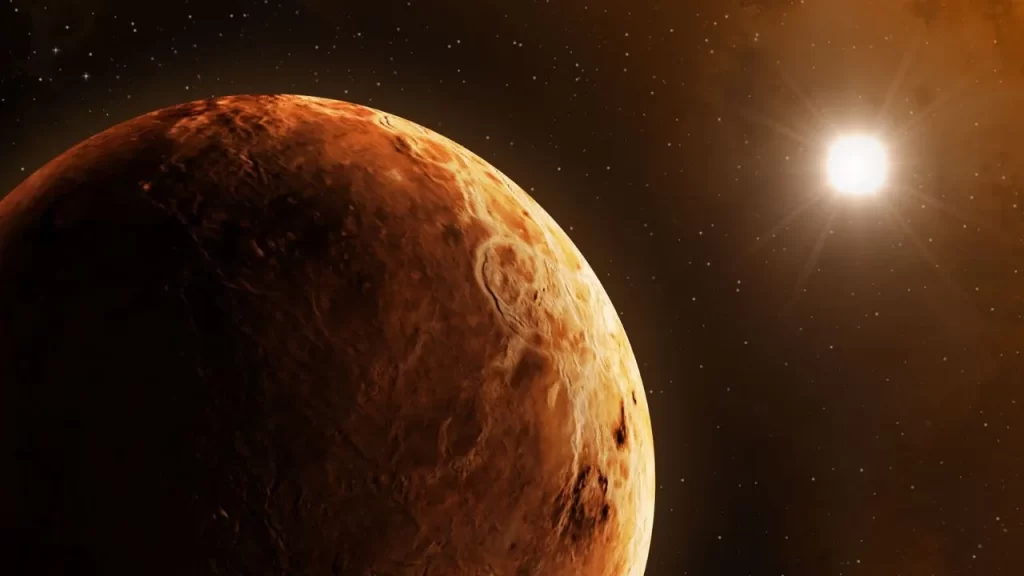
The Union Cabinet, led by Prime Minister Narendra Modi, has given the green light for the development of the Venus Orbiter Mission (VOM), marking a significant milestone in India’s growing space exploration ambitions. This mission represents the government’s commitment to exploring planets beyond the Moon and Mars, focusing on Venus, the closest planet to Earth, which has piqued scientific curiosity due to its similarity to early Earth conditions. The VOM will offer invaluable insights into how planetary environments evolve, potentially shedding light on Earth’s own past and future.
The Venus Orbiter Mission is an exciting endeavor aimed at deepening our understanding of Venus, the second planet from the Sun. Often referred to as Earth’s “sister planet” due to its similar size and composition, Venus presents an incredibly hostile environment that has intrigued scientists for decades. This mission seeks to uncover the planet’s mysteries by studying its atmosphere, surface, and possible volcanic activity from orbit.
Venus is a unique planet with a dense atmosphere composed mostly of carbon dioxide, with clouds of sulfuric acid, making it the hottest planet in our solar system. Surface temperatures on Venus can soar up to 900 degrees Fahrenheit (475 degrees Celsius), hot enough to melt lead. The extreme greenhouse effect on Venus provides valuable insights into the processes that can shape planetary climates, including how Earth’s own climate might evolve.
Understanding Venus can also provide clues to the history of our solar system. Some scientists believe that Venus may have once had oceans, and possibly even life, before it underwent a runaway greenhouse effect. Studying Venus may reveal why this drastic change occurred, helping us to learn more about planetary evolution.
The Venus Orbiter Mission, led by the Department of Space, aims to place a scientific spacecraft into orbit around Venus. This spacecraft will conduct extensive studies of the planet’s surface and subsurface, its atmospheric dynamics, and the influence of solar activity on its atmosphere.
One of the key objectives is to investigate why Venus, once believed to be habitable with Earth-like characteristics, experienced such a dramatic transformation. Understanding these changes could provide valuable knowledge about the evolution of both Venus and Earth, often referred to as “sister planets.”
The Indian Space Research Organisation (ISRO) has been entrusted with developing the spacecraft and overseeing its launch. ISRO will manage the project using its well-established practices, ensuring that the mission is carried out efficiently and effectively.
Once operational, the data gathered from the Venus Orbiter Mission will be shared with the global scientific community, expanding the understanding of planetary science. This dissemination of knowledge will follow existing mechanisms for data sharing within the scientific field.
The Venus Orbiter Mission (VOM) is set to be launched in March 2028, taking advantage of a specific launch window when Venus is optimally positioned for such a mission. Scientists expect the mission to answer several fundamental questions about Venus, particularly regarding its atmospheric processes, surface features, and past habitability. These findings could have far-reaching implications, contributing to a more comprehensive understanding of the solar system.
The mission also promises to provide significant benefits beyond scientific discovery. It is expected to generate new employment opportunities in various industries involved in the development of the spacecraft and launch vehicle.
Additionally, it could lead to technological advancements that spill over into other sectors of the economy. The realization of the spacecraft and launch vehicle will be achieved through partnerships with Indian industries, further fostering technological growth and innovation.
The total budget for the Venus Orbiter Mission is set at Rs. 1,236 crore, with Rs. 824 crore allocated specifically for the development of the spacecraft.
One of the key highlights of the mission is its potential to pave the way for future planetary exploration by India. The Venus mission will allow ISRO to experiment with larger payloads and optimize orbit insertion techniques, which could be applied to more ambitious future missions.
Academic institutions across the country will also be involved, providing training to students in various stages of the mission, such as design, testing, and calibration. This involvement will help nurture the next generation of scientists and engineers, further strengthening India’s space program.
The Venus Orbiter Mission signifies a bold step forward for India’s space exploration efforts. By aiming to study one of Earth’s closest planetary neighbors, India not only advances its scientific capabilities but also strengthens its position in the global space community.







